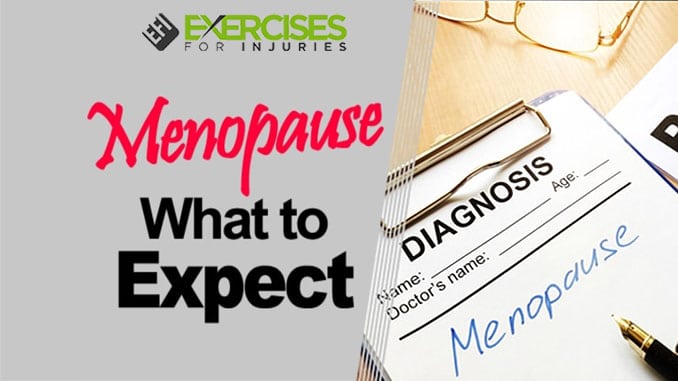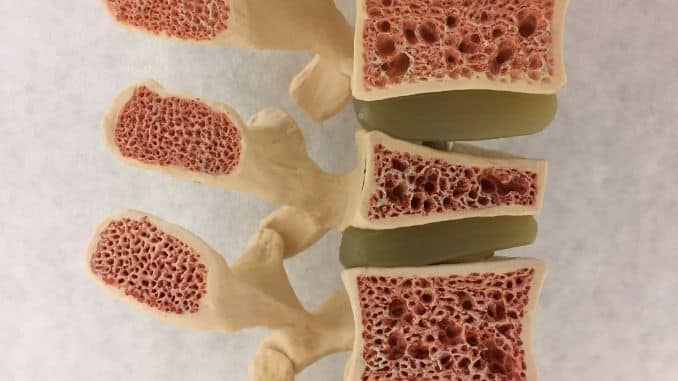
Menopause – What to Expect? Menopause the word stirs up images of angry middle-aged women with hot flashes. Don’t let the horror stories scare you. While there are certainly some unappealing aspects of menopause, it is another milestone in the story of your life. It doesn’t have to be horrible, and you don’t have to dread menopause. Knowing what to expect can help you to identify what’s coming and handle it with grace. If you’re wondering what to expect during menopause, read on. We’ve gathered all the facts you’ll need as you enter into the change.
When Does Menopause Begin?
Menopause – What to Expect: Menopause is medically defined as the cessation of menstruation that occurs between the ages of 45 and 55. Menopause happens either surgically, or naturally. If you have a complete hysterectomy, where the uterus and ovaries are removed, menopause will occur immediately.
Sadly, there’s no set age for when you will begin menopause. While the average age is 51 years old, some women will enter into menopause at 35 and others not until 60 years of age. Nevertheless, most women will begin menopause at around the same time as their mothers did. Most doctors will consider a woman menopausal if she has gone an entire 12 consecutive months without having a period and is at least 40 years old.
What Is Perimenopause?
Perimenopause is a transitional time between being fertile and menstruating to entering menopause. Perimenopause is similar to puberty in some ways — with hormones shifting up and down randomly. Some women enter into perimenopause in their mid-30s, others much later. Perimenopause can last as little as 2 years before menopause or up to 12 years. But, the average length of perimenopause is around 4 years.
A study in the journal, Obstetrics, and Gynecology, found that women who suffered more pronounced premenstrual syndrome (PMS), during childbearing years, are more likely to be affected by perimenopause symptoms later in life.
Symptoms of Perimenopause
Menopause – What to Expect? While symptoms vary widely, here are some of the more common effects of perimenopause:
- Irregular cycles: Often during perimenopause, women will experience irregular periods; there may be less time between periods and, sometimes, you may skip a period entirely
- Extreme breast tenderness before menstruation: Even if you have never had breast tenderness in the past, perimenopause can bring about breast tenderness before your period that’s more pronounced
- Mood swings: Vast hormonal shifts during perimenopause can cause mood swings and depression in some women
- Urinary tract infections: Low estrogen in perimenopause can lead to frequent urinary tract infections.
- Trouble sleeping: Hormonal changes can also cause insomnia and sleep disturbances
- Vaginal dryness: Diminishing estrogen levels may cause a loss in vaginal lubrication and elasticity
- Hot flashes: The hormonal fluctuations associated with perimenopause can cause hot flashes and night sweats
- Hormonal headaches: Many women report headaches marking the beginning and end of their period during perimenopause
What Is Sex Like During and After Menopause?
Menopause – What to Expect? Fortunately, if you have had an enjoyable sex life before menopause, you’ll likely continue to enjoy sex throughout menopause and afterward. However, some things will probably change a little. While you may not have ever needed added lubrication before menopause, you may need it through the change.
Some couples grow much closer sexually during menopause. It often becomes necessary to talk about sex more and try new things. Couples may need to focus a bit more on foreplay, which can be quite intimate and romantic. Perhaps the best part about menopausal sex is that if you’re in a monogamous relationship — there’s no more need for condoms or other forms of birth control.
What About Hot Flashes?
Hot flashes are common before and during menopause. Around 75 percent of women experience hot flashes at some point during the change. A hot flash is a sudden onset of intense heat characterized by flushing of the face, sweating, tingling in the hands, rapid heartbeat and warm skin. Some hot flashes may only last 60 seconds while others can go on for several minutes.
It’s unclear what exactly causes hot flashes. The hormonal changes that accompany menopause are linked with hot flashes. Other things that seem to aggravate hot flashes are drinking alcohol, being overweight, smoking, consuming caffeine and eating spicy foods.
Dealing with hot flashes is difficult and can be embarrassing. It’s wise to dress in layers so you can remove clothing as needed, during a hot flash. Try to limit your caffeine and alcohol intake as well to avoid hot flashes. If you’re a smoker, stop smoking. If you’re overweight, take measures to shed a few pounds. Some women take hormones to control hot flashes, but hormone therapy comes with side effects and risks. It should be a last resort.
Night Sweats
During the night, when you have a sudden hot flash, your body tries to cool things down by sweating and sweating some more. Night sweats can be intense, and many women have reported needing to change the sheets in the middle of the night due to wetness.
To reduce the severity of night sweats, stay away from alcohol before bed. Even one glass of wine before bed can increase flushing and night sweats. To make things easier when you do experience night sweats, use cotton sheets and perhaps put a single towel down on the fitted sheet before you lay down. The towel can be tossed off the bed easily if you’ve produced enough perspiration to make it wet. That’s a lot easier than changing the bedclothes in the middle of the night.
Menopause Can Lead to Bone Loss and Osteoporosis
Osteoporosis means “porous bones.” It is a disease that weakens the bones. According to researchers at the Cleveland Clinic, “There is a direct relationship between the lack of estrogen after menopause and the development of osteoporosis.” Even if you’ve never had a problem with brittle bones in the past, after menopause, you’ll want to take more precautions.
Make doubly sure you are taking a high-quality calcium supplement every day. Also, vitamin D3 helps your body to absorb calcium. Take a vitamin D3 supplement and make sure you’re spending time out in the sun.
Weight-bearing exercise is another way to build up the muscles to protect your bones. Consider adding ankle weights to your morning walk or lifting dumbbells while you watch TV in the evenings.
Early Menopause
There are some factors that can contribute to early menopause. People who suffer from lupus or an abnormal thyroid can enter menopause before the age of 40. Also, radiation and chemotherapy can damage the ovaries causing early menopause. As we mentioned above, the surgical removal of your ovaries during a complete hysterectomy will cause your body to enter menopause immediately.
With early menopause, many health practitioners will recommend hormone therapy for a time. Hormone therapy has risks as well as benefits. It may be wise to take the time to research the pros and cons of hormone therapy before you agree to use them.
Natural Solutions for Menopause Symptoms
Fortunately, if you are experiencing negative effects of menopause, there are natural remedies that have been shown to help:
- Black cohosh: Black cohosh is an herb that helps reduce hot flashes in some women. It is considered to be generally safe and does not act as a hormone replacement. If you have liver disease or are a heavy drinker, you should avoid black cohosh.
- Evening primrose oil: Some women report a reduction in hot flashes when using evening primrose oil. However, evening primrose oil should not be used along with anticoagulant medications or antipsychotic drugs.
- Ginseng: Research has shown that ginseng can be particularly helpful with sleep disruptions and mood swings in menopause. It doesn’t seem to help with hot flashes. Be particularly careful in taking ginseng if you have low blood sugar (hypoglycemia). Ginseng naturally lowers blood sugar.
- Vitex or chaste berry: Vitex is an excellent herb for women in all stages of menopause. It can help relieve hot flashes, regulate menstrual cycles and ward off depression. Vitex can also help with sex drive for both men and women.
- Hawthorn berries: Hawthorn berries can help improve your sex drive during menopause and heighten sensitivity in the nether regions.
Menopause a Natural Part of Life for Women
With all the facts about menopause, you now know what to expect. Prepare yourself for this part of life’s journey with information and a game plan. Knowing what’s normal and natural during this time will help you to enter into menopause with confidence.
Focus on the positive aspects of menopause. You’ll have no more monthly periods. No more buying pads, tampons or new underwear after leakage. You’ll see the end of monthly mood swings. Often, endometriosis and fibroid symptoms will also clear up during menopause. And there’s no more risk of unwanted pregnancy after the change.
As much as menopause may cause significant unwanted side effects, it is a natural and normal process. Your body was made to eventually enter into menopause and successfully pass through this time of change that marks the end of your reproductive years.
For your guide to the best foods to heal your body, check out The Best Foods that Rapidly Slim & Heal in 7 Days, here!






